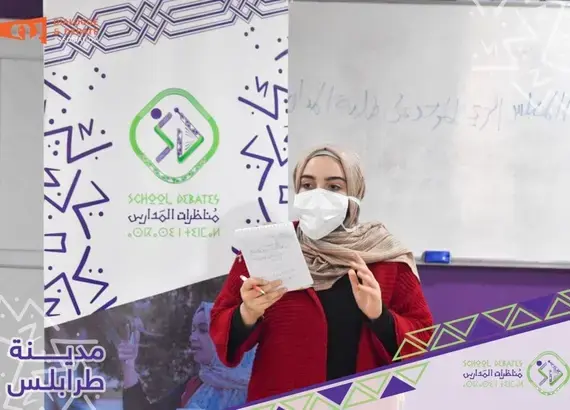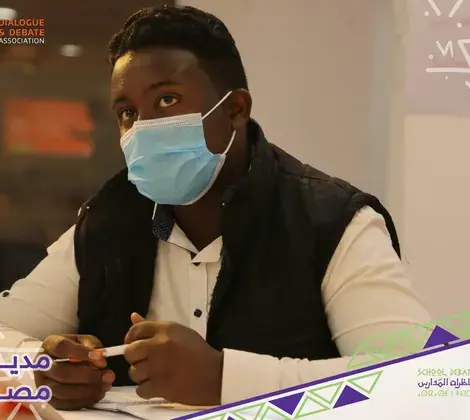
Success Story
Debate and Dialogue: Connecting the Next Generation of Libyan Leaders
Libyan students face unique challenges in the face of the ongoing conflict and the COVID-19 pandemic, which have curtailed opportunities for developing the skills needed in the next generation of the country’s leaders. Recognizing the importance of space for young people to discuss and participate in their future, NDI and its partner, the Dialogue and Debate Association (DDA), are finding innovative ways to connect students and make their voices heard.
Throughout October and November 2020, NDI supported DDA in the development and implementation of its Hessa e-learning platform, a virtual educational portal designed in response to the COVID-19 pandemic and the challenge it presents to keeping students connected with one another. The Hessa platform, which launched in December and has already been viewed 700 times and has over 530 registered users, allows students to learn debate and communication skills, remain connected to their peers, and access training presentations, videos, and lessons from professional debate coaches. Future updates will also include debate news and a voting system to select the best debater and debate organization on a particular project, activity, or tournament.

DDA’s debate programs, which are conducted in cooperation with the Ministry of Education, aid students in developing the vital skills associated with debate, such as critical thinking and confidently expressing their views with the goal of making changes in their communities. Such programs have far-reaching positive impacts--studies show that students who participate in extracurricular debate activities have greater social, civil, and school engagement than their peers. Building upon this advancement of participants as individuals, DDA also seeks to foster a wider culture of dialogue in Libya, increasing political participation and tolerance of diverse opinions among the youth population.
DDA has also safely continued in-person debate programming, following COVID-19 precautions such as social distancing and mask-wearing. On November 22, high school debate trainings took place in Tripoli, Zawiyah, Misrata, and Al-Qatrun. Bringing together over 160 students, the exercises introduced discussions that covered relevant topics such as health care, human rights, economics, elections, and the rule of law - inviting participants to openly consider the real issues concerning Libya’s future. Participants are also instructed on how they can open their own debate clubs. Abdul Al-Taher, a debate coach in Al-Qatrun, witnessed a larger than expected turnout at his training. “It was an amazing experience - the students came to the exercises with great enthusiasm, passion, and full of questions,” Abdul told NDI.
Zawiyah high school student Aya explained her decision to participate, saying, “Sometimes everyone has to try new things and take on adventures on their own. This was how the debate experience was with me, and this is the beginning of my adventure in the world of debate.” Aya’s enthusiasm was matched by fellow student Anas. “The school debate training that I participated in was fun, and we benefited a lot from it,” Anas said. “We learned how to prepare speeches and speak confidently in front of audiences, and through the training we got to know our peers who share the same interests.”
DDA will continue its debate programs with additional in-person trainings planned for the municipalities of Sirte, Jufra, and Qatrun, and formal online debates will be held via the Hessa portal following additional updates. These live and virtual sessions will prepare high school students for future local and national tournaments - showcasing the project’s “culture of dialogue” and students’ enhanced ability to address problems that are important to them and their country.
By adapting programming to the challenges of the COVID-19 pandemic, DDA and NDI are creating opportunities for students during a period when many other social and educational activities are curtailed and continuing to make a meaningful impact on youth across Libya.
NDI's engagement in Libya is implemented with support from the United States Agency for International Development (USAID) through the Consortium for Elections and Political Process Strengthening (CEPPS).



